🎧 We spoke to a Pakistani stuck in Sudan, listen here
A Pakistani citizen stuck in conflict-hit Sudan has issued a call for help. The SOS came after fighting intensified in the northeastern African country on Saturday, despite appeals by world powers for an Eid ceasefire.
“Last night the army used precision-guided missiles in our vicinity which shook our windows badly,” Muhammad Ahsan Sami told Aaj News over the phone when we asked about the latest situation.
Sami had earlier tweeted a nineteen-second video that shows an airstrike hit the city. The southern part of the Sudan capital was so far safe from actual fighting but lately the Rapid Support Forces (RSF) troops have been seen taking positions there, he added.
The RSF is fighting to gain control of the city from the regular army, which is also backed by the airforce.
Sudan’s warring forces clashed again in the capital early Friday, with bombing and shelling reported in several areas of Khartoum, as they ignored appeals by world powers for an end-of-Ramazan ceasefire.

Fighting erupted on April 15 between forces loyal to Sudan’s army chief Abdel Fattah al-Burhan and his deputy, Mohamed Hamdan Daglo, the commander of the powerful paramilitary RSF.
More than 400 people have been killed and over 3,500 others hurt in the fighting in Sudan, WHO spokeswoman Margaret Harris told reporters at a press briefing in Geneva.
‘Very tense’ situation
Sami, a Pakistani engineer, described the latest situation as “very tense” as fighting continues and the armed forces were pursuing the RSF troops across the capital city. There have been conflicting reports about who holds the upper hand in the fight.
Previously, the fighting was concentrated in the central area of Khartoum around the airport and Khartoum 2—a posh area where most diplomats used to reside.
Khartoum is a combination of three cities which are divided by the River Nile. Reports said that RSF was withdrawing to the city’s area, which is on the southern side of the Blue Nile River.
Sami lives in Southern Khartoum. Until Saturday morning, his area was safe from the intense fighting. The place where he lives is near the American embassy.
“I was considering myself relatively safe till yesterday as compared to others but right now our own condition is in the doldrums but we are fine and trying to convince each other of that. We are living by the support of prayers.”
According to information emerging from the area, which comes also from Sudanese social media, RSF troops were withdrawing from central Khartoum and moving towards his area as the government pursues them. “So right now, as I speak we are hearing the sound of airstrikes.”
He told Aaj News that the RSF has a stronghold in the northern part of Khartoum, the Kafouri area of Bahri. Omdurman was the second place where the situation was still “fifty-fifty”. Sami was of the view that the RSF was losing its position as they have called for a ceasefire while the army was in no mood to give any “leeway”.
The army has claimed that they have sealed the exit points of Khartoum to block any support for RSF from the outside.
But the movement of warring parties to an area where Pakistanis like Sami reside was worrying as they have been hearing the sound of shelling continuously. Friday’s shelling, according to Sami, was almost as close as the radius of one kilometer from his residence. The airstrikes were carried out on 60th Street, locally known as Shahrah-e-Siteen.
There were reports that the army attacked the anti-craft batteries of their adversary in such strikes with precision-guided ammunition. Its impact was so severe that it shook all buildings, he said, adding: “Normally we sit in our rooms. But then we made special arrangements to seal our doors and windows with mattresses, in case the windows are shattered… we can be saved from shrapnel.”
Pakistanis advised to ‘stay indoors’
Foreign Office Spokesperson Mumtaz Zahra Baloch has said that about 1,500 Pakistanis are stuck in Sudan. The embassy has advised them to stay indoors in view of the developments.
“The well-being of Pakistanis remains a key priority of the Government of Pakistan,” she stated before saying that the country continued to follow the “worrying” developments in Sudan and was closely monitoring the safety and security of the Pakistani community there.
The embassy in Sudan remains in close and constant contact with the community and will continue to facilitate them, she said—a claim that Sami to some extent agreed with.
Many Pakistanis in Sudan are living with their families and some have been in the country for more than 20 years, according to Sami. He went on to add that the blue-collar workers, who don’t have a good income, were facing the real problem, as all banks are closed and the sudden eruption of war did not give them time to store food rations.
If the evacuation starts, he added that they (workers) should be sponsored as they cannot afford air tickets.
He said that the Pakistan embassy’s location was in an active combat zone. The building was hit by at least three bullets amid clashes on Wednesday.
Foreign Minister Bilawal Bhutto Zardari tweeted about the overall situation.
Later, Prime Minister Shehbaz Sharif said the government was “closely watching” the situation in Sudan and consistently monitoring the steps taken for the protection of Pakistani citizens.
“Pakistan’s embassy in Sudan is in constant touch with the 1,500 Pakistanis living in Sudan and is providing them with all possible facilities. The embassy in Sudan has formed a WhatsApp group to remain in touch with Pakistanis who were advised to stay at home,” he said in an official handout as reported by the Associated Press of Pakistan.
PM Shehbaz said that difficulties were being faced in the evacuation of Pakistanis as the roads leading to airports were not safe, adding the government was in touch with friendly countries and the United Nations for the security of Pakistanis and for their swift evacuation.
The government believed that the Sudanese authorities would take steps to ensure the safety of Pakistanis, he added.
Foreign Affairs Secretary Asad M Khan met Sudan’s Ambassador in Pakistan Salih Mohamed Ahmed Mohamed Siddig to convey his concerns. He also held an online coordination meeting with the country’s missions in Khartoum and surrounding countries.
The visa issued to foreign nationals, especially those who come with a work visa, are allowed to have movement within the boundaries of Khartoum state, said Sami as he explained the reason for the embassy’s advisory.
He added that a permit from Sudan’s Ministry of Foreign Affairs was a prerequisite if someone intended to go outside the capital city. “Which was impossible right now,” he said and added that the embassy was contacting the friendly countries for the evacuation.
WhatsApp groups
The stranded Pakistanis are keeping in touch on two WhatsApp groups run by the Pakistan Embassy and the local community. Despite the ordeal, Sami was happy that at least they have electricity, cellular networks, and connectivity to be updated.
Apart from the capital city, Khartoum 2—an active combat zone—was facing disruption in the supply of electricity and water. But, he claimed that the armed forces have restored access to basic utilities to 70% of the areas.
“On Wednesday, the army accused RSF of illegal mobilisation. I was scheduled to return to Pakistan on April 20. We did not store many items but somehow I sensed the situation and we had stocked up rice, pasta, and pulses, however, many people are facing a shortage of rations,” Sami said.
He was all praise for the Sudanese people and shopkeepers for keeping the actual prices of items amid the war. “Many pharmacies distributed insulin for free despite the shortage of medicines and they kept their shops open even when there was intense shelling.”
‘Khartoum not ready for war’
Sami has been in the northeastern African country since 2017. He has seen bad times in the past but the conflict going on this year was “unprecedented” for him.
The engineer gave the example of the 2019 revolution when unarmed civilians protested against the security forces. They were dispersed after a crackdown by the government.
“This is the first time in Khartoum’s history that people are watching live combat. This is unusual,” he told Aaj News. This city is not prepared for war, he added, as homes do not have basements. People live paycheck to paycheck.
FO urged to evacuate people
There were confirmed reports that the Sudanese Armed Forces agreed with the US, China, Japan, European Union, Saudi Arabia, and Jordan to allow evacuation of their citizens via Port Sudan International Airport, Sami said on Saturday.
In a tweet, he urged the Foreign Office to take advantage of the “opportunity” and plan evacuations for Pakistani citizens too.
“There are some Pakistani women who are pregnant and some close to their due dates. Pray for them as many hospitals continue to stay out of service and reaching those which are operational remains a challenge,” he said.
Sami, along with others, continued to hear reports of firing and shelling from different parts of the city despite the agreed ceasefire of 72 hours between the warring parties. “Last night was calm in our area though.”
Meanwhile, Foreign Secretary Khan in a tweet said that he had an in-depth discussion with the staff on finalising plans for a “safe and quick” evacuation of the citizens from Sudan.




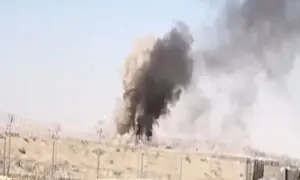
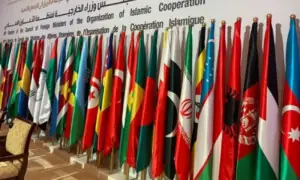
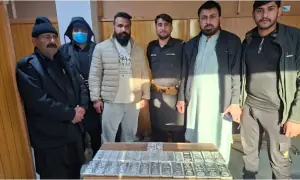
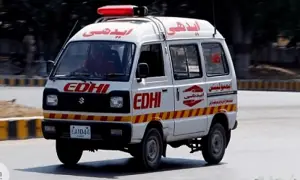
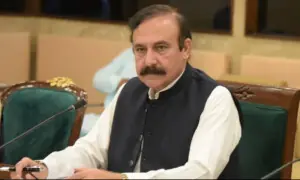
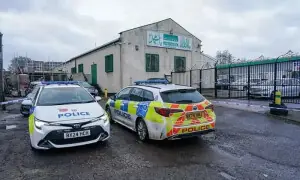





Comments are closed on this story.